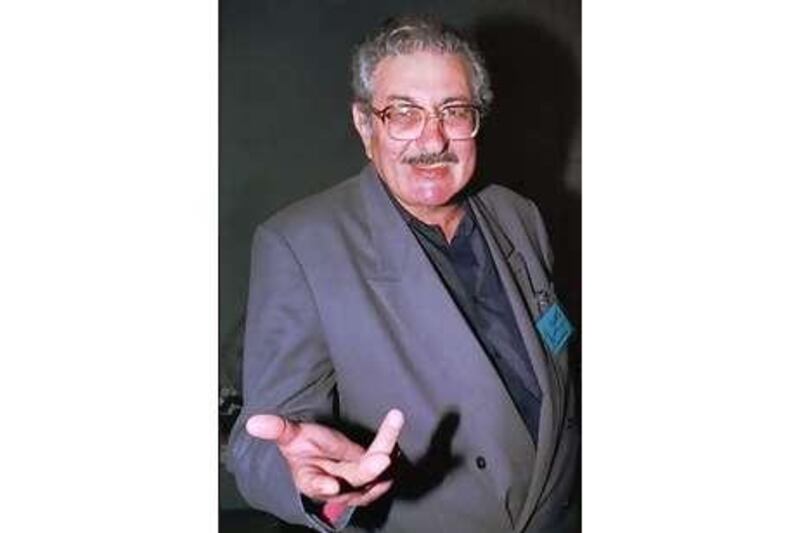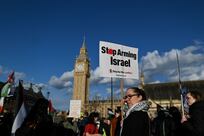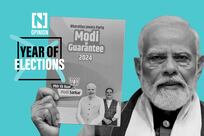Just before his death, Abu Daoud, the architect of the Black September kidnapping of Israeli athletes during the 1972 Olympics in Munich, issued his last challenge to Israel: "Today, I cannot fight you anymore; but my grandson will and his grandsons, too." Since 1967 he had fought for the liberation of Palestine and for most of his life he lived in exile. Mohammed Daoud Oudeh was born in Silwan, east Jerusalem. Having trained as a teacher, he taught physics and maths in West Bank Palestinian schools before studying to be a lawyer. After East Jerusalem was captured by Israel in 1967, he moved to Jordan, joined the PLO and contributed to the PLO charter.
He helped found Fatah and, following Jordan's expulsion of Palestinian guerrillas in September 1970, he led the Black September group, a splinter of the PLO. He assumed the nom de guerre Abu Daoud and for five months during 1972 planned the raid on the athletes' village in Munich. Billed as "the Games of Peace and Joy", Munich was intended to banish the memory of Hitler's Berlin Olympics 36 years before. With the aid of the Stasi and Syrian intelligence, Daoud had organised the smuggling of weapons into Munich and met his colleagues in a cafe near the Munich Bahnhof on the evening of September 4, 1972. He played no further part in the plot. Hours later, eight of the guerrillas scaled the walls of the athletes' village, capturing nine Israelis, having killed two, a weightlifter and a wrestling coach, who had resisted.
Black September offered to exchange their hostages for 236 Palestinians in Israeli jails. Golda Meir, the Israeli prime minister, refused to negotiate. After a 24-hour stand-off, German authorities agreed to fly the captors and captives to Cairo but as two members of the gang inspected the plane that was to take them, German snipers shot them. The ensuing gun battle left 15 bodies lying on the tarmac and in the plane - five gang members, a German policeman and all nine hostages.
For nearly three decades, Daoud remained silent about his involvement in the kidnapping but in 1998 his memoirs, From Jerusalem to Munich, revealed his role. (They appeared as Memoirs of a Palestinian Terrorist, in English the next year). He wrote that his clear instructions were "to avoid harming the hostages", whom he wanted to exchange. He later admitted that he prolonged negotiation to maximise publicity about "Palestinian legitimate grievances".
In 2005, in reaction to the release of Steven Spielberg's film, Munich, he claimed no Israeli civilians had been targeted. "Some of them [the Israeli athletes] had taken part in wars and killed many Palestinians. Whether a pianist or an athlete, any Israeli is a soldier." After the massacre, Daoud lived briefly in Eastern Europe, then in Lebanon until the civil war, when he returned to Jordan. In 1981, he was sitting in a hotel cafe in Warsaw when a gunman shot him in the chest, stomach, jaw and wrist. Before collapsing, he chased the gunman, believed to be either a Palestinian double agent or someone from a rival Palestinian faction.
He was allowed to return to Ramallah after the 1993 Oslo Accords. In 1996, he was allowed to travel to Gaza to amend the Palestinian charter that called for the eradication of the Jewish state. In 1999, after publication of his memoirs and following a trip to Jordan, he was prohibited from returning to the West Bank and settled in Syria, the only country that would take him. It was in Syria that he died, succumbing to kidney failure in Damascus.
He told a reporter in 2008: "Would you believe me if I tell you that if I had to do it all over, I would?" But maybe, just maybe, we should have shown some flexibility. Back in our days, it was the whole of Palestine or nothing, but we should have accepted a Palestinian state next to Israel." Abu Daoud, born in 1937, is survived by his wife, a son and five daughters. He died on July 3. * The National






